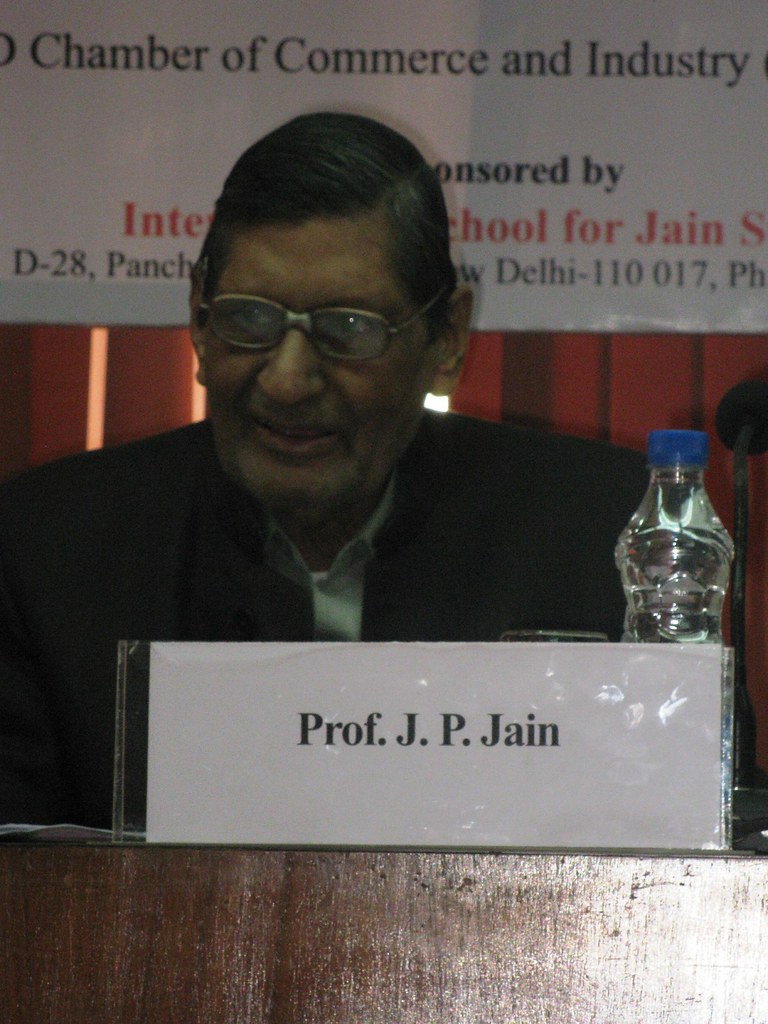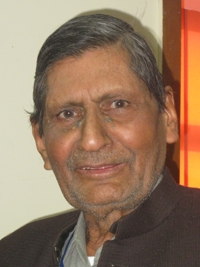ISJS
Series of 3 seminars on
Integrating Modern Science and Spirituality for Social Wellness:
A Challenge of 21st Century
Seminar "A"
Consciousness and Knowledge: Scientific and Spiritual Perspectives
Delhi
Sundday, December 12, 2010
Abstract
Understanding Jain Philosophy through Modern Science, and Real and Relative Points of View
When our logical mind realizes some contradictions in a spiritual concept then some persons just discard or ignore the spiritual aspect. Some persons remain skeptical. Some persons use such contradictions to argue with friends and teachers for the whole life. But some find good teachers and books that help in resolving the contradictions. It may be noted that a logical mind creates contradictions and a higher level of logic resolves the contradictions. In this talk my purpose is to try to describe and resolve some contradictions to explain some very important and basic concepts of philosophy thorough examples of modern science, and Nischaya (real) and Vyavahar (relative) points of view.
We shall take a few examples. Example 1: Let us take a test tube of distilled water and add some salt in it. Now we ask two questions:
- Question-1: Is this water pure?
Answer: No, It is not pure water. It is salty water.
- Question-2: Imagine you have very powerful microscope and you can see each molecule of water (H2O) and each molecule of salt (NACL). See the figure. Now with such visualization we ask: is any water molecule a salty molecule.
Answer: No, each water molecule is separate from the molecules of the salt. At molecular level, a water molecule is clean and pure. A salt molecule does not ‘enter’ a water molecule. This answer has a great significance in explaining an important concept which says that essentially we are pure soul and all impurities and worldly things are different from us. To be liberated from sins, on one hand we should not indulge in sins, and on the other hand we should have this notion that we are always a pure and divine soul. We have a potential of having eternal bliss. In our worldly behavior also it teaches us that we should not be overwhelmed by our problems. Further, one should not be overwhelmed by one’s past mistakes.
Similarly, we can take up another example of burning of coal. In the reaction, carbon + oxygen = carbon dioxide, from one point of view there is destruction of coal. But from another point of view, number of protons, electron and neutrons before burning and after burning does not change. From this real point of view only the relative positions of these particles change during the burning event. In other words, in real sense nothing gets burnt. Both points of view are important. If we know only burning and destruction then it is our ignorance. This example also helps in explaining eternal soul as well as significance of non-violence and avoidance of violence.
Let us take one more example. Let us consider production of electricity in a nuclear power plant. The engineers, scientists, deserve credit for this production. But can they really produce electricity? The scientists would say that energy can neither be produced nor be destroyed. The energy comes from the nuclear fuel. A proper and deep understanding of this scientific example can be helpful in resolving the issue of the Karta-Akarta-Bhava : From one point of view (relative), we are doer of our worldly tasks and from other point of view (real point of view) we are non-doer of any worldly task, we are only instrumental (Nimmita). These examples clearly illustrate that the science can be helpful if we view aspects from the real as well as relative points of view.
Photos


 Prof. J.P. Jain
Prof. J.P. Jain
